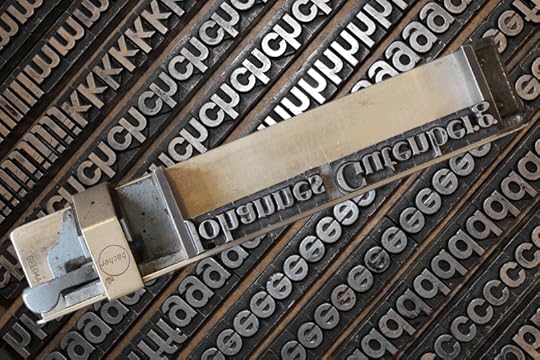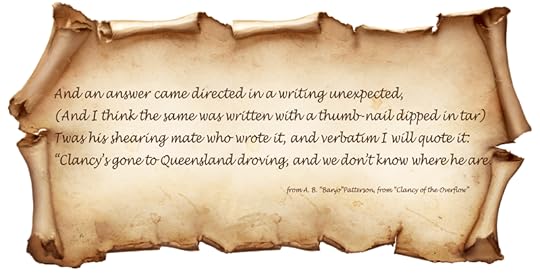S.K. Dunstall's Blog, page 18
December 1, 2018
Gah, Gutenberg, Yay New Zealand

You may have noticed a few more typos in our blogs of late.
It’s not me.
I do make mistakes, some occasional typos, a bit of bad grammar,not deliberately, but they slip in. (You can rest assured that we edit our books a lot more than we edit our blogs.)
Word Press is in in the process of changing from its old editor(which wasn’t bad) to a new editor called Gutenberg. (Yes, named after that Gutenberg.)It’s not too bad, based around blocks rather than a full screen. Before Gutenberg the whole document was one long string of text, with paragraph breaks. Now each paragraph becomes a block, which you add and remove at will. An image is a block too, as is a heading.
Anyway, there were a few hiccups at the start, but nothing too onerous. Then suddenly, one release, it started pulling spaces out. It’s seemingly random. I have no idea why or what or how, but it happens. It may have something to do with the fact that I write the articles in Word first, I don’t know.
Worse still, Sherylyn proofreads the articles. “You have so many words run together,” she says.
“What?” I say. “I checked them in Word, and then afterwards,
when I put them into Word Press. They’re fine.”
“Take a look.” So I look, and there’s a whole lot of words running together.
I edit the post and ensure every single space has been added back in. I save it. And guess what. New words run together.
You can almost see the steam coming out of my ears. It takes around five edits to get rid of them all, and even then I’m not really sure I’ve got them.
On another note. We’re holidaying in December. Cruising to New Zealand. We’re looking forward to it. We’ve dubbed this the “Lord of the Rings”holiday. We’ve already booked two Lord of the Rings tours, and are considering a third.
We’ll tell you about it if we get internet time, otherwise we’ll share photos when we get back.
November 24, 2018
Restoring my faith in the electoral process

We voted yesterday in our state government elections.
We do it at our local primary school. As usual, we had a cake stall, and there was theobligatory sausage sizzle run by the parents.
Politics in Australia, while not as crazy as it appears to be in some other democratic countries right now, does appear to be becoming more extreme and less democratic. Plus we have people brokering preference deals with the parties for money, which to me is starting on a slippery slope downwards and helps to get some really crazy people elected. (Always vote below the line people, not above.)
I know we hear mostly bad news, but there were instances I
read about on social media and in the newspapers of voters being harassed.
A woman had one of the people handing out how-to-vote cards follow
her into the polling place, and up to the booth where she was trying to vote.
(This is absolutely not allowed, they have to remain a certain distance from
the polling place.)
Another did a postal vote at an overseas embassy, and the person
accepting his vote checked his ballot. (Another absolute no-no.) Not only that, they told him he’d voted
wrong. (He’d voted below the line, not above.)
No one but you sees what you put onto that ballot. You can put nothing
on it if you like. It’s your choice. And if you do it wrong, that’s your
problem.
At least these issues are being caught and reported, but itstill meant that when I went in to vote yesterday I wasn’t feeling thatconfident about our democratic future.
I got to the polling place, looked around for the people handing out how-to-vote cards. They weren’t in the usual place. Looked over, finally saw them, made my way across.
There were four people, all for different representatives.
“They’ve changed the law,” one of them said cheerfully. “We have to stay further back now.”
I collected my cards (leaflets, really), then joined theline. It only took about ten minutes toget inside, but in that ten minutes I watched the four representatives befriendly to everyone as they handed out cards to new arrivals. And when there was no one to hand out cardsto, they talked and laughed together as a group.
I don’t know why it made such a difference, but it did.
I came away from the polling booth feeling better about
democracy, and better about people in general.
I came away feeling hopeful.
November 17, 2018
Is this a kissing book?
This week has been run-off-your feet busy.
So of course, the computer started giving issues
as well. Or not so much the computer,
but we are getting lots (and lots, and lots) of spam. I think we’ve caught most of the spam, by
upping the spam filter, but the occasional non-spam message gets caught in the
filter, too, so we have to go through each one.
If you have sent us a message, understand it may take a couple of days to
get to.
“My name is Inigo Montoya. You killed my father. Prepare to die.”
Vale William Goldman, the author of Princess Bride, who passed away late last week.
Many of us have watched the movie so many times we know it off by heart.
“Tyrone, you know how much I love watching you work, but I’ve got my country’s 500th anniversary to plan, my wedding to arrange, my wife to murder, and Guilder to frame for it. I’m swamped.”
He didn’t just write Princess Bride of course. He also wrote the screenplays for Butch Cassidy and the Sundance Kid and All the President’s Men, among other things. Including the screenplay for the Mel Gibson/Jodi Foster movie, Maverick, another movie I love. For most of us in speculative fiction, however, it’s Princess Bride we all love.
“You keep using that word. I do not think it means what you think it means.”
Many of us have watched the movie so many times we know it
off by heart.
Thank you, William Goldman, for the story. You may be gone, but your stories will live on.
November 3, 2018
So many books, not enough time to write them

This morning Sherylyn and I had a working breakfast. We do this roughly once every two months. We go down to a local café, where the seats
are comfortable, and we can linger over coffee.
Sometimes we talk about the current story we are writing, sometimes we
talk about future writing.
Today, we talked about future stories we want to write.
It turns out that we have seventeen story ideas in train.
That’s right. Seventeen.
Some of the stories are written to first draft or
beyond. None of them finished, mind, but
some close enough to consider one-more-draft-and-then-ready-to-send-to-our-agent
finished. Others are little more than
ideas that we want to work on.
So why aren’t we finishing the nearly-completed ones and
sending them to our agent? Two
things. Time and genre.
First, we need time to do that last draft before we send to
our agent. We both work full time, we’ve
a book we must deliver. We have no time to complete other stories.
Second, not all of these are science fiction.
Some of them are out-and-out fantasy. We even have one rural
fantasy, set in the hot, dry landscape of Australia’s Mallee region.
Some of them are mashups—science and fantasy. (Some readers might say that’s little
different to what we have now.)
There are several portal world stories—where the portal is a
teleport to another world in our universe, rather than a portal to an alternate
reality.
Plus lots of other fun ideas.
We don’t know if any of these stories are saleable. What we do know is that the ones that we have
already written/part written were fun to write.
That’s important, because above all, you should enjoy what
you write.
October 28, 2018
Where I’d like to be
 Gold Coast, Queensland
Gold Coast, QueenslandWe have been so busy lately. Right now I’d love to be somewhere else.
We’ve holidays coming up in December, so it’s not that far away, but that’s one of the things that’s making us work harder.
I’m exhausted.
October 20, 2018
It’s goodbye to another laptop

Sometimes the writing flows, sometimes it doesn’t, and while
I prefer writing on a desktop to a laptop, the first drafts of our novels have
been produced on laptops. That’s because
many of them have been written on our work commute.
The first basic requirement for me has always been, “Can
the laptop fit into my handbag?”
This is my third laptop since we started writing the
Linesman novels. The first was a little 10”
Acer Aspire netbook that even ten years ago only cost around $300. It was
a solid little workhorse that lasted four years. The second was a slightly larger laptop (11”)
that weighted four times as much.
That laptop put my back out, broke at least two bags, and
crystallised my second requirement. “How
heavy is it?” Carrying four kilograms of
PC every day wasn’t fun.
I bore it for six months, then bought the little Sony 11”
Vaio that I’ve had for the last five years.
That’s nearing the end of its life, now. The shift keys are broken. I have to press hard on other keys to make
them work. The touchpad isn’t sensitive
any more (thank goodness for touch screen functionality, which has saved my
writing lots of times), and it keeps selecting chunks of text (sometimes the
whole novel) with disastrous consequences if I don’t notice and typing.
Four to five years seems to be the average life of my
laptops. That’s pretty good, given the
amount of work they do.
It’s time to go shopping.
Charles Babbage built his analytic engine back in
1837. Konrad Zuse built the first programmable
computer, the Z1, in the 1930s. (He
built it in his parent’s living room, and if you’ve ever seen a picture of it,
it was a big machine. He must have had very
forbearing parents.) Every one of us
alive today was born in an age of computers.
There’s a massive difference between a computer bought in
the year 1998, and a computer bought in 2008.
Not so much between one bought in 2008 and 2018. I mean sure, there’s more memory and more
power, and some of them are a little lighter, and there are a few more apps, but
you know what I’m going to be using my new laptop for? Word processing. And that’s exactly the same thing I was using
it for ten years ago.
I’m even going to be using the same word processing
software. Microsoft Word.
Sure, we have things like mobile phones and tablets
nowadays, but try writing a story on them.
Until writers come up with a different way of writing stories—maybe by
dictation—we’re still going to need a keyboard and a screen. That limits the technology somewhat.
October 13, 2018
Answers to “Can you recognise this book, movie, …”

How did you go with last week’s quiz, where we asked you to identify the book, movie, television series, play or poem based on a few words
1. 42
Hitchiker’s Guide to the Galaxy a novel by Douglas Adams.
The number 42 was the answer
to the ultimate question of life, the universe and everything. A super computer,
Deep Thought, was created to come up with the answer, which it did, although it
took seven and a half million years to do it, and by then, no one knew what the
original question was.
2. A handbag
The Importance of Being Earnest a play by Oscar Wilde.
As children, we devoured books, especially second-hand books we’d get from the opportunity shops. Back in those days, there were a lot books about girls going to boarding school. The Merry books, by Clare Mallory, were our absolute favorites. In Merry Begins (I think), they put on a play—The Importance of Being Earnest—and that line, about the handbag, came up in the book. It wasn’t till years later that we actually saw the play.
3. As you wish
Princess Bride. The
book was written by William Goldman—which I confess I haven’t read—but I have
seen the movie so many times I can almost say the lines along with the
characters. There are so many quotable quotes.
“Inconceivable.” “Have fun
storming the castle.” “Only mostly dead.”
And, of course, the absolutely unforgettable, classic, “My name is Inigo
Montoya. You killed my father. Prepare to die.”
4. Beam me up
“Beam me up, Scotty,” is from Star Trek, the original
series. Can’t say any more than that.
5. Elementary
I believe that in Arthur Conan Doyle’s books, Sherlock Holmes never said “Elementary my dear Watson.” That came later, in the films. Although Holmes did say the word, “Elementary,” in The Crooked Man.
The word—the phrase, in fact—is, however, indelibly associated
with Sherlock Holmes. So much so that a
recent television series about a modern-day Holmes and Watson was called
Elementary, and no explanation of the title was needed.
6. Frankly, my dear
A little bit of a cheat on this one, because it usually
comes with the rest of the sentence. “Frankly
my dear, I don’t give a damn.”
Yes, it’s Rhett Butler in the 1939 movie Gone With the Wind. In Margaret Mitchell’s book the film was based on, I believe he said something more along the lines of “Frankly, I don’t give a damn.”
7. Friends, Romans, countrymen
Marc Antony’s speech from William’s Shakespeare’s Julius Caesar. As children we had this game where we’d go around saying, “Friends, Romans, countrymen, lend me your ears, and we’d all make a play of taking off our ears and handing them to the person who asked.
The things kids do.
Even if you don’t go to see Shakespeare’s plays, he’s beautiful to read—aloud or silently. He has this amazing way with words. Not to mention, there’s so much that quotable.
8. Here, kitty, kitty, kitty
Yes, Kate Daniels’ first book. Ilona Andrews’ Magic Bites, when Kate first meets Curran.
9. Houston, we have a problem
This quotation comes from the 1995 movie, Apollo 13, starring Tom Hanks, Kevin Bacon, Bill Paxton, Gary Sinise and Ed Harris.
It’s not quite a direct quotation from the real Apollo 13 mission, but they did say something similar.
10. I ate’nt dead
Esmeralda Weatherwax, from Terry Pratchett’s Discworld series. Esmerleda goes out borrowing other bodies and while she does, her own body remains in a comatose state. Hence she wears a sign “I ate’nt dead” to avoid embarrassing accidents. (Note, ate’nt is where Esmeralda puts the apostrophe.)
11. It’s just a flesh wound
Monty Python’s film, the Holy Grail. It’s said by the Black Knight, after he loses both arms.
12. More like guidelines, rather than rules
The actual words are “The code is more what you call guidelines, than actual rules.” It comes from the movie Pirates of the Caribbean. Captain Barbossa says this to Elizabeth, after she tries to invoke the pirate code.
13. My preciousss
I added the extra s’s myself. From The Lord of the Rings films. Gollum, of course.
14. No man is an island
This comes from a poem of the same name written by John Donne. There are two quotable quotes from the poem, the other being “for whom the bell tolls”, but that’s also the name of a novel published by Ernest Hemingway, so I used “no man is an island” instead.
15. Shaken, not stirred
Yes, Ian Fleming’s James Bond
loves his martinis shaken, not stirred.
16. The best laid plans
Another poem, where the common quote isn’t quite the same as the real thing, because the actual words are “The best laid schemes”.
This is from Robbie Burns poem, To a Mouse. Again, another poem I love to read aloud and silently. Great poem.

17. To infinity and beyond
Buzz Lightyear’s famous catchphrase from the Toy Story films.
18. We don’t know where he are
A. B. (Banjo) Patterson is one of the giants in Australian literature. This from one of his best-known poems, Clancy of the Overflow.
19. What is best in life?
Conan the Barbarian. The quote
comes from the 1982 movie, not from the Robert E. Howard books. I believe the scriptwriter took the quote
from an earlier book about Genghis Khan, not written by Howard.
While I know the quote, the
closest I’ve ever been to Conan is a beta read I did of another author’s
book. He told me it was in the style of
Conan the Barbarian.
“I haven’t read Conan,” I
said, “But I’ll beta read if you want me to.”
I can’t remember how good the story was or wasn’t, because by the end I was so frustrated by the women in the book, who were all dumb objects, just along to further the main character’s story. If I recall my critique came back something along the lines of, “I found it difficult to warm to your protagonist. I also feel you are likely to alienate half your potential readership by your portrayal of women. Maybe you should give them more active roles.”
From what I’ve read since, the author sounds as if he got exactly what he was trying for. A Conan-type story. I have to say, my feedback was useless to him.
20. You can’t handle the truth
Jack Nicholson’s immortal line in the 1992 movie A Few Good Men.
Daniel Kaffee (Tom Cruise): “I want the truth.”
Colonel Jessup (Jack Nicholson): “You can’t handle the truth.”
An excellent movie.
October 6, 2018
Can you recognise this book, movie or play from a couple of words?

Whoa. This year is
zooming by. This post comes to you an
hour earlier than normal, courtesy of daylight savings, which started last
night. We were just saying this morning
how lovely it was to wake to full daylight, too. (I’m not sure whether to be happy or
concerned that this year all the clocks in my house adjusted their time
automatically. Including my chill alarm clock,
because everything’s online.)
At work we’ve already started the mad scramble to
Christmas. Booking holidays, booking
end-of-year functions. Honestly, once
upon a time we’d just book the local pub a couple of days before our
end-of-year party and we’d all trundle down.
Nowadays, you book in October, or earlier, and places can still be
booked out.
In no time at all, it’ll be 2019.
But, in the meantime, let’s have some fun. There are some words and phrases that you can
instantly associate with a book, a television series, a movie, or even a play.
“I’ll be back,” for example, is forever associated with the Terminator movies. So here’s a list of—for us—well known words or phrases that we associate with a specific book, movie, television series, poem or play.
How many do you know?
42A handbagAs you wishBeam me upElementaryFrankly, my dearFriends, Romans, countrymenHere, kitty, kitty, kittyHouston, we have a problemI aten’t deadIt’s just a flesh woundMore [like] guidelines, rather than rulesMy preciousssNo man is an islandShaken, not stirredThe best laid plansTo infinity and beyondWe don’t know where he areWhat is best in life?You can’t handle the truth
September 29, 2018
If you have to watch the ads, at least be entertained or educated
Good advertisements are entertaining and emotional. I’ve talked about Audible Australia, which
takes famous songs, and ‘audibilises them”. They’re simply entertainment.
There are the reaffirming ads. Like the Dove Real Beauty Sketches advertisement from 2013.
Then there are the ads that truly inspire you and make you
feel better about the world, like the recent Shell ad I recently saw on twitter
about gravity lights. As as
advertisement, mind you, it worked. Because the first thing I did after I saw
the ad was google gravity lights.
I found a TedTalk on the gravity lights, and was so impressed I’m sharing it here.
This is amazing technology, and so simple.
September 23, 2018
Talking writing books in IT terms—Agile vs Waterfall
 Sometimes I wonder if Agile methodology was invented by 3-M and Sharpie, because Post-It notes and Sharpies are staples
Sometimes I wonder if Agile methodology was invented by 3-M and Sharpie, because Post-It notes and Sharpies are staplesI work in the computer industry (also known as IT industry,
where IT stands for Information Technology).
There are a number of basic methodologies for developing software in IT,
but the two big ones are Waterfall and
Agile.
Waterfall development, also known as traditional
development, is a method where you do each step—analysis, design, code, test—sequentially.
The problem with waterfall is that it’s
hard to change direction. You don’t know if the whole thing is going to work
until it’s done and out in the public.
Agile breaks the work down into smaller tasks. You work on one set of tasks, and then loop around to do the next. In general, this improves the quality, because you’re testing right from the start. It also allows you to change direction quickly if you find something isn’t working.
If we were to use these methodologies in writing, then the process by which a traditional publisher publishes a book would be Waterfall.
Publisher acquires a bookSchedules publication dateAuthor delivers the bookThe editor edits itAuthor revisesCover copy is writtenCover is designedCopy editor edits the bookAuthor reviews editsARC is producedBook is printedPrinted copies are sent to bookstoresPublication day
The list above is not necessarily in order, and it’s only an approximation of all the work that is done.
Authors who are traditionally plotters would also work via the Waterfall method.
Story ideaPlot out the storyWrite the story, one plot-point at a timeEdit the storySend to editor
While authors who are pantsers work more to an Agile
methodology.
Story ideaStart writingEdit what you’ve writtenWrite some moreEdit that, and so on until you’re doneSend completed story to editor
An agile purist would probably be horrified at my analogy,
because in reality it’s more like writing a serial, with reader feedback every
week.
Story ideaWrite an episodeRevisePublishListen to feedback from the readersWrite the next episode, taking into account the
reader feedbackRevisePublishAnd continue to do that until the story is done.



